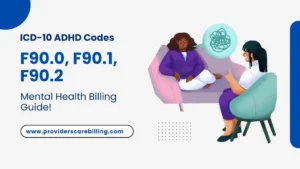The revenue cycle management in medical billing refers to the entire process of managing a patient’s account, from the moment they schedule an appointment to the final payment received for services rendered. It encompasses a series of steps that involve various stakeholders, including the patient, healthcare provider, and insurance payer.
The Components of Revenue Cycle Management:
Patient Pre-registration:
- The cycle begins with collecting accurate patient information during pre-registration. This includes demographic details, insurance information, and any relevant historical data. Ensuring the accuracy of this information sets the stage for a smooth RCM process.
Eligibility Verification:
- Verifying a patient’s insurance eligibility is a critical step in RCM. This helps prevent claim denials due to issues such as lapsed coverage or policy limitations. It also aids in estimating the patient’s financial responsibility accurately.
Charge Capture:
- Accurately documenting the services provided during a patient’s visit is crucial for proper billing. This includes assigning the appropriate medical codes for procedures and diagnoses. The precision in charge capture directly impacts the revenue generated from healthcare services.
Claim Submission:
- Once charges are captured, the next step is submitting claims to insurance payers. RCM involves ensuring that claims are accurate, complete, and compliant with payer requirements. Timely submission is vital for avoiding delays in reimbursement.
Payment Posting:
- After claims are processed by insurance payers, received payments need to be posted to patient accounts. This step involves updating the billing system with payment details, ensuring transparency in financial transactions.
Denial Management:
- Not all claims are approved on the first submission. RCM includes a robust denial management process to identify reasons for denials, correct errors, and resubmit claims promptly. Effective denial management is crucial for maximizing revenue.
Patient Billing and Follow-up:
- The final stages involve generating patient statements for any remaining balances after insurance payments. RCM includes proactive follow-up with patients to address billing inquiries, secure payments, and ensure a positive financial interaction.
The Importance of Revenue Cycle Management:
Efficient Revenue Cycle Management is pivotal for several reasons:
Financial Stability:
- A well-optimized RCM process contributes to the financial stability of healthcare providers. It ensures that services are appropriately reimbursed, reducing revenue leakage.
Reduced Errors and Denials:
- The meticulous nature of RCM minimizes errors in billing and coding, reducing the likelihood of claim denials. This, in turn, accelerates the reimbursement process.
Enhanced Patient Experience:
- A streamlined RCM process leads to clear and accurate patient billing, promoting transparency and trust. This positively impacts the overall patient experience.
Regulatory Compliance:
- RCM ensures compliance with evolving healthcare regulations and payer requirements. Staying abreast of these changes is vital to avoid penalties and legal issues.
How Providers Care Billing LLC Can Enhance Your Revenue Cycle Management:
Navigating the complexities of Revenue Cycle Management requires expertise and dedication. Providers Care Billing LLC stands as a trusted partner in optimizing RCM for healthcare providers. Our experienced team is committed to excellence, offering comprehensive medical billing and coding solutions tailored to your practice’s unique needs.




